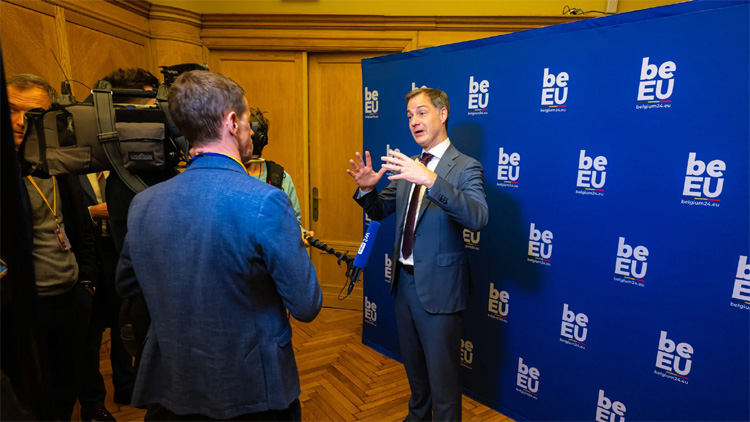During the presidency, Belgium will be in the spotlight, with many events taking place in Brussels. Did you know that the Belgian capital ranks among one of the world’s most international cities? This is reflected not only by its very diverse population, but also by the high number of diplomats and press correspondents who live and work here.
Despite its modest size, Brussels is often the scene of global decision-making. Both the presence of international organisations, such as the EU or NATO, and the proximity of the Council of Europe and the International Court of Justice, among others, just across the border, render the Belgian capital desirable to diplomats, journalists and international citizens.
Diplomatic representation
Brussels is home to more than 300 foreign representations, as well as their 60,000 consular and diplomatic staff. In addition, 120 international organisations (such as the African Union and the World Customs Organization) are either headquartered or officially represented here.
In 1967, NATO moved its headquarters to the Belgian capital. Backed by 3,850 employees, it is the largest intergovernmental organisation here. In addition, one of NATO’s strategic headquarters (SHAPE) was also established in Belgium, near Mons.
There are currently 38 European Union institutions, agencies and organisations that have their headquarters or liaison offices in Brussels. These include the Council of the European Union, the European Council, the European Parliament and the European Commission. Moreover, since the creation of the European Committee of the Regions in 1994, 300 local and regional representations have been established in Brussels.
The United Nations has representative offices for 25 of its agencies, funds and programmes in Brussels. These include the WHO (World Health Organization), UNICEF (Children’s Fund), the World Bank, ILO (International Labour Organization) and the OHCHR (Human Rights Office).
Press hub
There are currently around 730 accredited journalists (EU correspondents) permanently based in the Belgian capital. During a European summit, this number can temporarily rise to as many as 1,500 (including, for example, camera crew).
The 27 Member States are well represented in the Brussels press corps. Most journalists are from Belgium (15%), followed by Germany (12%) and France (10%). The largest number of journalists from outside the EU originate from the United Kingdom (10%). There are also foreign correspondents from the United States and Mexico, among others.
In reporting, delivering relevant and informative news to the home market remains the main brief. However, the press corps also plays an important role in influencing the important issues discussed at European level (aka agenda setting). This is especially true for English-language media and news outlets that focus on the EU as a whole.
Lobbyists and think tanks
Brussels accounts for about 20,000 international lobbyists – a number surpassed only by Washington DC. Moreover, Brussels is the No. 1 city worldwide for political engagement. This could possibly explain why as many as 881 think tanks have settled there.
International community
Brussels is an international city not only because of its political and diplomatic representations, but also thanks to the citizens who live and work there. Brussels’ 1.2 million residents collectively represent more than 180 nationalities. In addition, as many as 108 languages are spoken.

